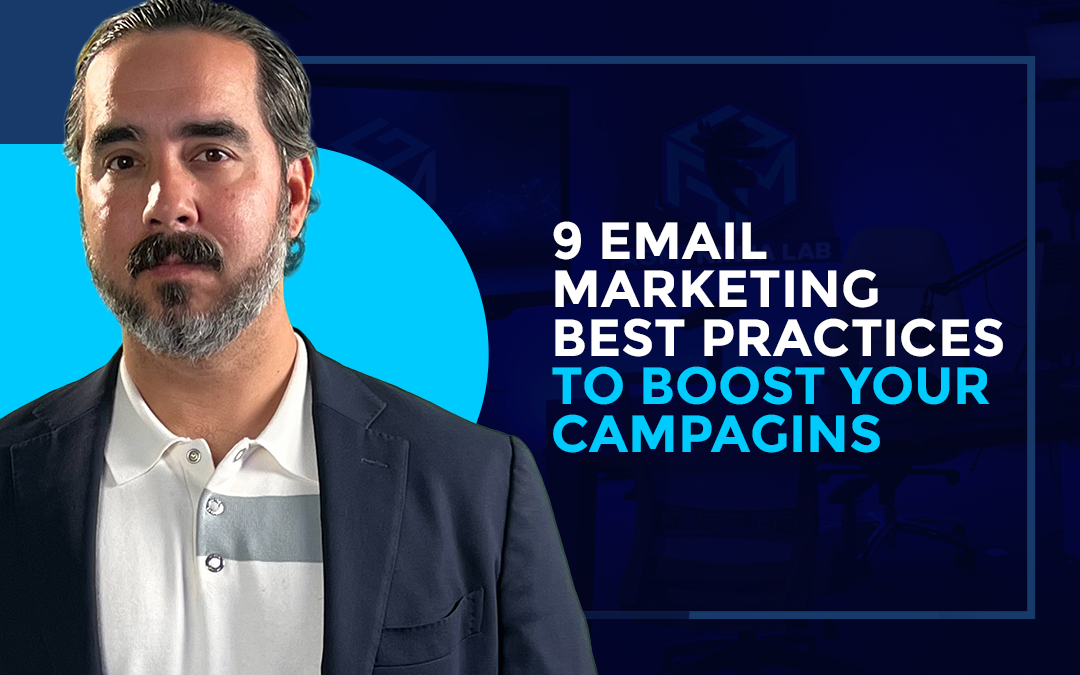Email marketing is a powerful tool for reaching your target audience and engaging with your customers. But with so many emails flooding inboxes every day, it’s crucial to follow email marketing best practices to ensure your message is heard.
In this post, we’ll cover everything you need to know to create successful email marketing campaigns that drive results.
Set Clear Objectives
Email marketing can be a powerful tool for achieving a variety of business goals, from driving sales to building brand awareness. However, to be successful, it’s important to set clear objectives for your email campaigns.
Before creating your email content, define the purpose of your campaigns, determine your target audience, and establish your goals and key performance indicators (KPIs). This will help guide the rest of your email marketing strategy and ensure that you are creating content that is aligned with your objectives.
Build a High-Quality Email List
The success of your email marketing campaigns depends heavily on the quality of your email list. To ensure that your messages are reaching engaged subscribers who are interested in your content, it’s important to build a high-quality email list.
Use double opt-in to ensure that your subscribers have given explicit permission to receive your emails, and avoid purchasing email lists, as these can often contain low-quality or outdated contacts.
Instead, use lead magnets and other incentives to attract subscribers who are genuinely interested in your brand. Finally, promote your email list across all channels, from your website to your social media channels.
Segment Your Email List
Segmentation is a powerful tool for improving the effectiveness of your email campaigns. By dividing your email list based on demographics, behavior, or interests, you can create targeted messages that are more relevant and personalized to your subscribers. This can help improve engagement and drive better results.
To segment your list effectively, use data and analytics to identify commonalities among your subscribers and create targeted messages for each segment.
Finally, be sure to personalize your email content to increase engagement and create a more personalized experience for your subscribers.
To better assist you, take a look at a free comprehensive guide on segmentation to better grasp the full idea.
Create Compelling Subject Lines
The subject line is one of the most important elements of your email, as it is the first thing that your subscribers will see when they receive your message.
To create compelling subject lines, keep them short and to the point, use action-oriented language, and consider using personalization, urgency, and curiosity to capture attention. Experiment with different subject lines to see what works best for your audience and always test your subject lines before sending out your campaigns.
Use a free year-round subject line tester like Omnisends email subject line tester to help you feel more confident about what you’re subject lines.
Personalize Your Emails
Personalization is another key element of effective email marketing. By addressing subscribers by name and tailoring email content to their behavior or preferences, you can create a more engaging and personalized experience that resonates with your audience.
To personalize your emails effectively, use personalization tokens to address subscribers by name, tailor your email content to subscriber behavior or preferences, and use dynamic content to show different content based on subscriber data.
Use Engaging Content
To keep your subscribers engaged and interested in your content, it’s important to use a mix of visuals, text, and video in your emails. Use storytelling techniques to create emotional connections with your audience and use social proof to increase credibility and trust. Finally, make sure that your email content is relevant to your subscribers and aligned with your overall marketing objectives.
Design for Mobile Devices
In today’s world, designing emails that work well on mobile devices is essential, as more and more people use their mobile devices to check their emails.
It is important to keep in mind that the screen size of mobile devices is much smaller than that of a desktop, which means that the design of your email needs to be optimized accordingly.
To optimize your email for mobile devices, you should use responsive design. Responsive design adjusts the size and layout of your email based on the screen size of the device your subscriber is using.
This ensures that your email looks good on all screen sizes. Additionally, it is best to use a single column layout as it makes it easier to read on smaller screens.
Another important aspect of designing emails for mobile devices is using large fonts and buttons that are easy to click on. It is also important to include Clear Call-to-Actions (CTAs) that are easy to spot and click on.
Using actionable language in your CTAs can also encourage subscribers to take action. Placing CTA buttons prominently in your email and using scarcity or urgency can also encourage action from your subscribers.
You can also take a look at a free guide the team down at Zoho made on Responsive Email Designs.
Test and Optimize Your Emails
Testing and optimizing your emails is an ongoing process that can help you improve the effectiveness of your email marketing campaigns. There are several ways to test and optimize your emails, such as A/B testing subject lines, content, and CTAs to see what works best.
It is also important to analyze email metrics such as open rates, click-through rates, and conversion rates to optimize for better performance. By analyzing these metrics, you can gain insights into what is working well and what can be improved. Experimenting with different email formats and designs can also help you to determine what resonates with your audience.
Follow Email Marketing Regulations
It’s important to comply with email marketing regulations to avoid legal issues and maintain the trust of your subscribers. Here are some email marketing regulations to keep in mind:
- Comply with anti-spam laws like CAN-SPAM and GDPR
- Provide an easy way for subscribers to unsubscribe from your emails
- Honor subscriber preferences and privacy by only sending emails to subscribers who have opted-in to receive them.
Conclusion
Email marketing is an effective way to engage with your target audience and drive business results. However, to succeed in this competitive space, it’s important to follow best practices to ensure that your messages are reaching engaged subscribers who are interested in your content.
By setting clear objectives, building a high-quality email list, segmenting your email list, creating compelling subject lines, personalizing your emails, using engaging content, designing for mobile devices, testing and optimizing your emails, and following email marketing regulations, you can create successful email marketing campaigns that drive results and maintain the trust of your subscribers.
By implementing these best practices, you can improve the effectiveness of your email marketing campaigns and achieve your business goals.
Struggling to grasp email marketing? It may be time to reach out to someone who can provide you a strategy and platform to focus on.
FAQs
Q: How often should I send emails?
A: It depends on your audience and your objectives. For some businesses, sending daily emails is effective, while for others, a monthly newsletter is sufficient. Test different frequencies to see what works best for your audience.
Q: Can I buy email lists?
A: No, buying email lists especially as a beginner is not a recommended practice. Purchased email lists often contain low-quality or outdated contacts and can harm your sender reputation.
Q: How can I improve my email open rates?
A: Use compelling subject lines, personalize your emails, and segment your email list. Testing different send times and frequency can also help improve open rates.



